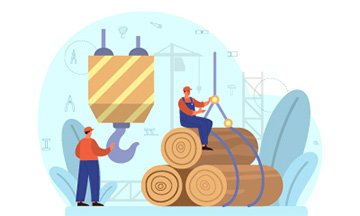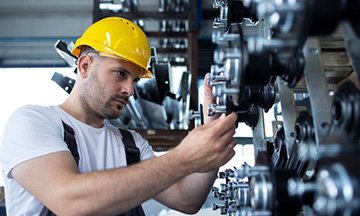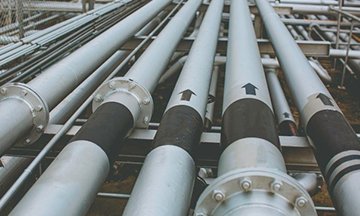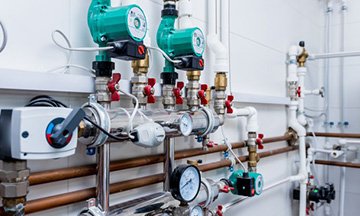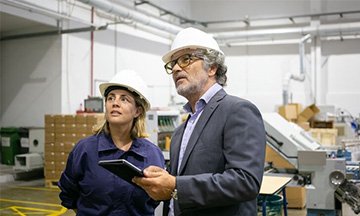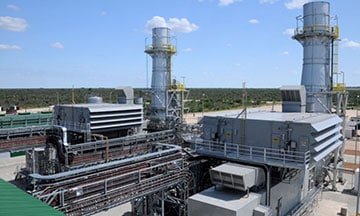Lifting Equipment and Lifting Operations, Regulations & Maintenance Training Course
| Date | Format | Duration | Fees | |
|---|---|---|---|---|
| 27 May - 31 May, 2024 | Live Online | 5 Days | $2250 | Register |
| 16 Jun - 20 Jun, 2024 | Live Online | 5 Days | $2250 | Register |
| 22 Jul - 02 Aug, 2024 | Live Online | 10 Days | $4495 | Register |
| 09 Sep - 27 Sep, 2024 | Live Online | 15 Days | $6745 | Register |
| 11 Nov - 19 Nov, 2024 | Live Online | 7 Days | $3147 | Register |
| 16 Dec - 20 Dec, 2024 | Live Online | 5 Days | $2250 | Register |
| Date | Venue | Duration | Fees | |
|---|---|---|---|---|
| 13 May - 17 May, 2024 | Kigali | 5 Days | $4950 | Register |
| 20 May - 24 May, 2024 | Dubai | 5 Days | $4750 | Register |
| 03 Jun - 07 Jun, 2024 | Dubai | 5 Days | $4750 | Register |
| 30 Jun - 04 Jul, 2024 | Doha | 5 Days | $4950 | Register |
| 08 Jul - 19 Jul, 2024 | Abu Dhabi | 10 Days | $9150 | Register |
| 15 Jul - 19 Jul, 2024 | Dubai | 5 Days | $4750 | Register |
| 05 Aug - 09 Aug, 2024 | Dubai | 5 Days | $4750 | Register |
| 02 Sep - 20 Sep, 2024 | Dubai | 15 Days | $12525 | Register |
| 21 Oct - 25 Oct, 2024 | Dubai | 5 Days | $4750 | Register |
| 25 Nov - 06 Dec, 2024 | New York | 10 Days | $9850 | Register |
| 25 Nov - 29 Nov, 2024 | Dubai | 5 Days | $4750 | Register |
| 02 Dec - 06 Dec, 2024 | Dubai | 5 Days | $4750 | Register |
Course Overview
Commonly referred to as ‘Lifting Operations and Lifting Equipment Regulations (LOLER)’, this course covers the essentials of the duties of employees and businesses who own, operate, or have control over lifting equipment.
Does lifting equipment need to be certified?
If your establishment or workers carry out lifting operations, certification does help. If any of your activities are involved in providing lifting equipment for others to use, it is your responsibility to manage it. All controls must be in place to avoid the associated risks of injury or damage.
What does an equipment inspector do?
Lifting equipment must perform properly and be in good condition for it to be safe. If it is not preserved and examined periodically, any manageable faults may go undetected, which can increase the risk of accidents.
What are the risks that will be discussed in this “Certification in Lifting Equipment and Lifting Operations, Regulations & Maintenance” training program?
In this course, you will realise how to plan for and address such risks. You will see why emergency procedures are required. We would look at some examples of emergencies concerning lifting operations.
This Zoe training course will provide you the knowledge to properly plan, supervise, and carry out any lifting operations safely using lifting equipment.
Course Objectives
Upon completing this Certification in Lifting Equipment and Lifting Operations, Regulations & Maintenance training program successfully, participants will be able to:
- Define the common roles involved in lifting operations
- Distinguish the general requirements of LOLER
- Describe what LOLER is and to whom it applies
- Discover the types of equipment and accessories that LOLER cover
- Study the record-keeping and fault reporting requisites under LOLE
- Declare the duties of the employer and self-employed under these regulations
- Perform a risk assessment on the lifting equipment
- Discuss the requirements relating to the marking of lifting equipment
- Share an example of a safe lifting plan for lifting equipment
- Uncover the examination, inspection, and reporting requirements of this legislation
Training Methodology
This collaborative Certification in Lifting Equipment and Lifting Operations, Regulations & Maintenance training program will comprise the following training methods:
- Lectures
- Seminars & Presentations
- Group Discussions
- Assignments
- Case Studies & Functional Exercises
Like all our other training programs, this course also follows the ‘Do-Review-Learn-Apply’ model.
Organisational Benefits
Companies who nominate their employees to participate in this Certification in Lifting Equipment and Lifting Operations, Regulations & Maintenance training program can benefit in the following ways:
- Benefit from training your employees on the definition and importance of mechanical information, along with the different roles played within the Lifting Equipment and Lifting Operations, Regulations & Maintenance guidelines
- Learn and apply standards in equipment identification, equipment design features analysis, equipment performance calculations, safe operation and monitoring of equipment, and equipment maintenance
- Delegates will be able to apply the gained knowledge through this course and practice skills and that will impact their respective companies
- Maintain better organisational safety records
Personal Benefits
Individuals who participate in this Certification in Lifting Equipment and Lifting Operations, Regulations & Maintenance training program can gain from it in the following ways:
- Improve your career opportunities and increase your ability to work across worldwide industries like oil and gas, automobile, production, construction, aeronautics, etc.
- Secure a relevant job anywhere in the world with the right knowledge in Lifting Equipment and Lifting Operations, Regulations & Maintenance
- Get promoted in your current job in the Lifting Equipment and Lifting Operations, Regulations & Maintenance field
- Acquire the professional skills and knowledge required to accomplish your tasks with optimal competence and accuracy
- Master the knowledge and techniques to see the future of an effective Lifting Equipment and Lifting Operations, Regulations & Maintenance process
- Discover how to work well with your machines and the risks of not being able to operate them accurately
- Contribute to your organisation by being knowledgeable enough to determine the need for a program/process at your workplace or understand an existing program better
- Get an opportunity to work through hands-on exercises in detail to gain the skills needed to facilitate a Lifting Equipment and Lifting Operations, Regulations & Maintenance study
- Gain the skills to plan, manage, facilitate, and scribe for a Lifting Equipment and Lifting Operations, Regulations & Maintenance project
Who Should Attend?
This Certification in Lifting Equipment and Lifting Operations, Regulations & Maintenance training program would be suitable for:
- HSE Inspectors
- EH&S Officers
- Safety Engineers
- EH&S training personnel
- Local authority health and safety inspectors
- Local authority enforcement officers
- Legal professionals
- All personnel responsible for the planning of lifting operations in their organization
- Employees involved in lifting operations
- Anyone who uses lifting equipment or is directly or indirectly responsible for workers who control lifting equipment
Course Outline
Module 1: Introduction to LOLER
- What is LOLER?
- Who has duties under LOLER?
- General duties of employees
- Other relevant legislation
- What is a lifting operation?
- What is lifting equipment?
- What are lifting accessories?
- What is a load?
- Equipment excluded from LOLER
- What are the risks?
Module 2: Risk Assessment & Management
- What is a risk assessment?
- Key definitions of risks
- Step 1: Identify the hazards
- Step 2: Determine who is at risk and how
- Step 3: Evaluate risks and decide on controls
- Step 4: Record your findings and implement suitable action plans
- Step 5: Review and update
Module 3: Selecting Suitable Lifting Equipment And Accessories
- Selecting lifting equipment and accessories
- Examples of safe lifting equipment selection
- Marking of lifting equipment
- Environmental effects
- Lifting equipment for lifting people
- Strength and stability
- Positioning and installation
- Safe working loads
- Derating lifting equipment
Module 4: Examination, Maintenance, And Storage
- Requirements of examinations and maintenance
- What does a thorough examination cover?
- Competent personnel
- Frequency of thorough examinations
- Laws that require maintenance and thorough examination
- Records of thorough examinations
- Hired equipment
- Pre-use checks
- Maintenance of equipment
- Safe storage of equipment
Module 5: Planning Operations And Reducing Risks
- Planning and supervision
- What should an operations plan cover?
- Location and positioning of equipment
- Working with suspended loads
- Attaching, detaching, and securing loads
- Preventing overturning and destabilising
- Visibility and weather
- Lifting equipment for people
- Slips, trips, and falls
- Emergency procedures and information
- Instruction and training
